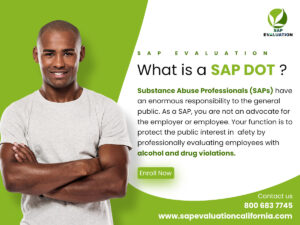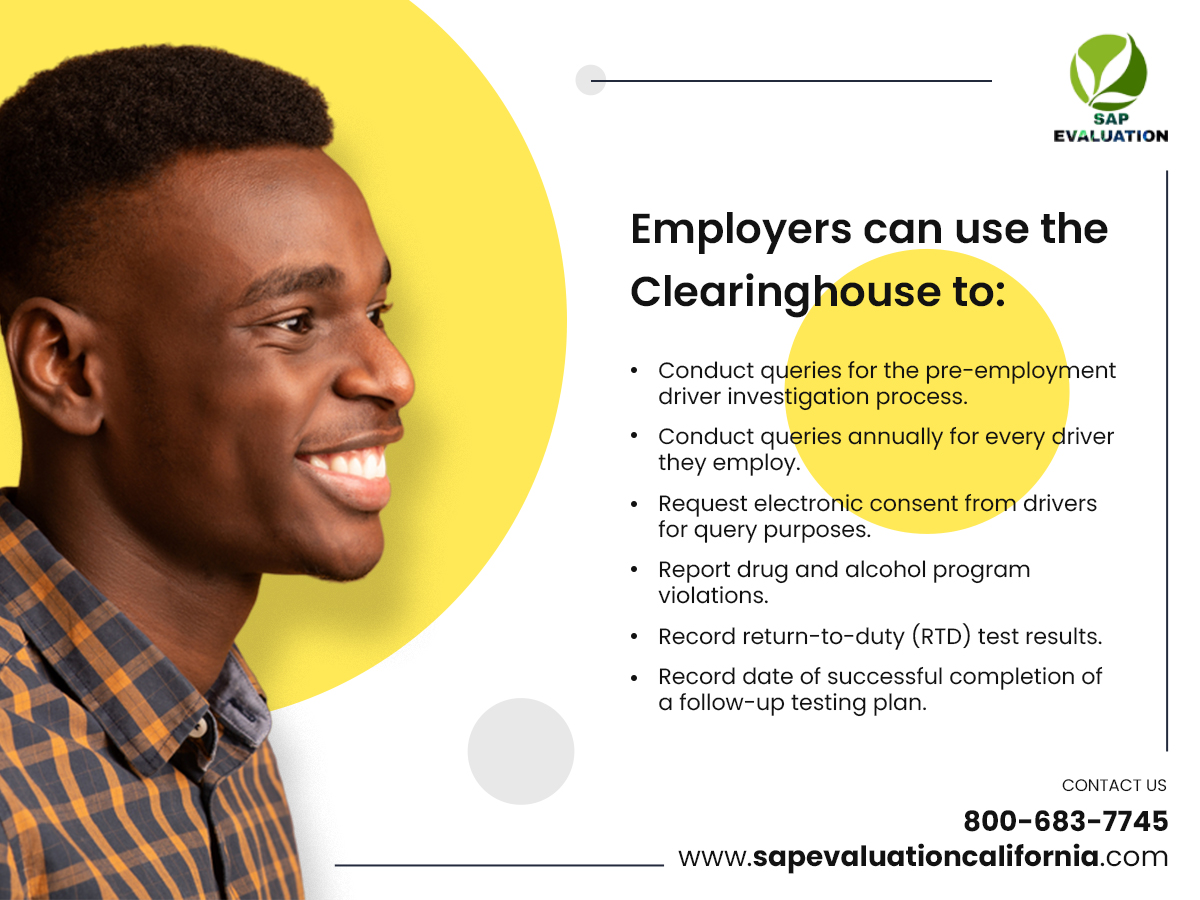SAP Evaluation California is an essential component of ensuring safety in safety-sensitive positions. This program aims to assist individuals who have violated the Department of Transportation (DOT) drug and alcohol regulations in returning to their duties after they have completed the necessary steps toward recovery. In this article, we will dive into how the SAP program works and the key elements involved in the process.
Initial Referral to a SAP
The SAP process begins with an initial referral. Once an individual violates DOT drug and alcohol regulations, the individual must undergo a SAP evaluation. The referral may come from the employer, a medical review officer, or a DOT agency. This referral is a crucial first step in initiating the SAP program.
Evaluation by a Substance Abuse Professional
After the referral, the individual meets with a Substance Abuse Professional for a comprehensive evaluation. The SAP assesses the severity of the substance abuse issue and determines the appropriate treatment and education programs needed for the individual’s recovery. This evaluation involves gathering information about the violation, substance use history, previous treatment attempts, and other relevant factors.
Development of a Treatment Plan
Based on the evaluation findings, the Substance Abuse Professional develops a personalized treatment plan for the individual. This plan may include recommendations for counseling, education programs, rehabilitation services, or any other necessary interventions. The treatment plan takes into account the specific needs of the individual and aims to address the underlying substance abuse issues effectively.
Treatment Compliance and Monitoring
Once the treatment plan is established, the individual is required to comply with the recommended treatment and monitoring. This may involve attending counseling sessions, participating in educational courses, undergoing regular drug testing, and adhering to any other requirements outlined in the treatment plan. Compliance and monitoring are crucial components of the SAP program to ensure the individual’s commitment to their recovery.

Communication with Employers and Regulatory Agencies
Throughout the SAP program, there is continuous communication between the Substance Abuse Professional, the individual, the employer, and regulatory agencies. The SAP provides updates on the individual’s progress, ensures compliance with DOT regulations, and collaborates with employers to determine the appropriate timing for the individual’s return to safety-sensitive duties. This communication makes sure that all parties are informed and engaged in the process.
Follow-Up Evaluations and Continued Monitoring
Following the completion of the recommended treatment program, the individual undergoes follow-up evaluations to assess their ongoing recovery progress. These evaluations may involve check-ins with the SAP, drug testing, and workplace evaluations if necessary. Continued monitoring helps ensure the individual’s sustained commitment to sobriety and adherence to DOT regulations.
Return-to-Duty Decision
Once the individual has successfully completed the SAP program, including the recommended treatment and any required follow-up evaluations, the Substance Abuse Professional makes a return-to-duty decision. This decision is based on the individual’s progress, compliance with the program, and readiness to safely resume their safety-sensitive duties. The SAP communicates this decision to the employer and regulatory agencies.
Aftercare and Ongoing Support
Even after the return-to-duty decision, aftercare and ongoing support are crucial for the individual’s long-term recovery. The Substance Abuse Professional may provide resources for continued counseling, support groups, or other services to help the individual maintain sobriety and address any challenges that may arise. Ongoing support plays a vital role in preventing relapse and promoting sustained wellness.
Confidentiality and Privacy Protections
Throughout the SAP program, confidentiality and privacy protections are maintained. The SAP Evaluation near me follows strict legal and ethical guidelines, such as the Health Insurance Portability and Accountability Act (HIPAA), to ensure the confidentiality of the individual’s information. This fosters trust between the individual and the SAP and promotes open and honest communication during the evaluation and treatment process.
Importance of SAP Program in Promoting Safety
The SAP program plays a crucial role in promoting safety in safety-sensitive positions. By addressing substance abuse issues, providing appropriate treatment, and ensuring compliance with DOT regulations, the program helps individuals overcome their substance abuse challenges and return to their duties in a safe and responsible manner. The SAP program contributes to a safer work environment for both the individuals and those around them.
In conclusion
Program of SAP Evaluation California involves a comprehensive process that includes an initial referral, evaluation by a Substance Abuse Professional, development of a treatment plan, treatment compliance, and monitoring, communication with employers and regulatory agencies, follow-up evaluations, return-to-duty decisions, aftercare, and ongoing support. Confidentiality and privacy protections are maintained throughout the program. The SAP program plays a vital role in promoting safety and supporting individuals in their recovery journey within safety-sensitive positions.










